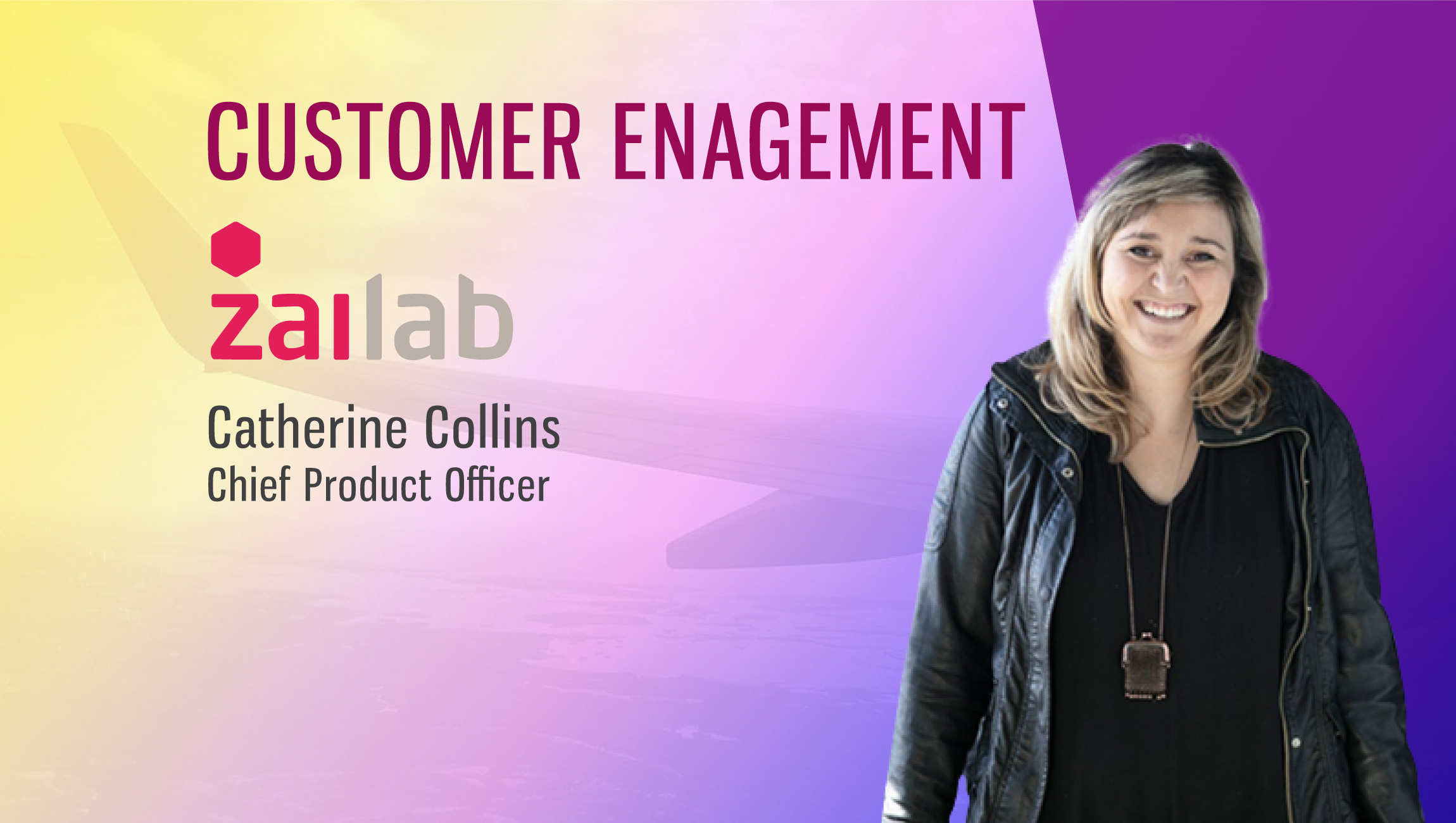Catherine Collins
Chief Product Officer, ZaiLab
Contact centers play a vital role in omnichannel marketing and commerce. With customers engaging on multiple channels, marketers are looking to AI to help them achieve the scale required to address their CX requirements. We spoke to Catherine Collins, Chief Product Officer, Zailab, to understand the changing contours of customer engagement.
Html code here! Replace this with any non empty text and that's it.
How do you believe brands should leverage omnichannel contact center solutions to increase customer engagement?
It’s old news that customers no longer communicate with organizations with voice alone. We communicate via email, text message, live chat, and social media on a daily basis. Smartphones give us access to these channels 24/7. We have become more demanding as customers and no longer remain loyal to organizations out of brand loyalty. Nowadays we favor organizations that deliver excellent customer service – service that we expect to be delivered across any channel of communication. Omnichannel contact center solutions provide the vehicle for your customers to engage with your organization. Engagement is increased when the appropriate channel is available to your customer at the appropriate time. Each channel serves a different need.
A fast resolution, for example, requires a phone call, sending documentation – an email, quick responses to customers browsing a website – live chat, and updates and short informative answers – a text message. This engagement should not always be initiated by your customers either. Proactive engagement, where a customers’ needs are met without having to make contact, is proving to be a powerful tool in delivering excellent customer service.
What are the foundational tenets of the Conversation Cloud?
The term ‘call center’ is a legacy term used to describe a physical workplace where customers and agents communicate on the phone. Over time more communication channels were utilized and the term was adapted to ‘contact center’. Now Cloud communication has made it possible for agents to work from anywhere. This is evident in the fact that the number of home agents in the US has risen. Contact Babel reports that 52% of respondents to their recent study are using home agents (US Contact Centers 2018-2022). We felt that the term ‘center’ no longer applied to the way people were working. Contact centers are being driven to become customer focused and deliver excellent service. With that in mind, it’s becoming more important to have conversations rather than just ‘making contact’. This is why we use the term ‘Conversation Cloud’ to describe the network of conversations that are occurring in the cloud.
Could you take us through how ZaiLab’s offering solves the issue of context?
As customers move from one channel to another, it becomes impossible for your agents to deliver excellent service as the information concerning those conversations is held across different systems. For example, if a customer calls in on Monday and speaks to agent Bob then sends a follow-up email on Wednesday, the agent that deals with the email needs to have the context of the call that occurred on Monday in order to service the query appropriately. ZaiLab offers a conversation manager which groups interactions into conversations. So when a customer calls in, all past conversations with that customer will be available to the agent. That includes interactions across multiple channels – call, email, SMS and live chat. Agents are able to familiarize themselves with past interactions and gain valuable context before responding to the customer.
How does ZaiLab leverage AI/ML technologies in its offering?
Our AI determines which agent has the best chance of satisfying a customer’s needs and achieving a successful result (e.g a sale, resolved query etc.). When customers make contact with your organization they need to be matched to an appropriate agent. There are generally two problems that need to be solved – which customer should be served first and which agent is best suited to serve that customer. Today, most systems answer these questions by looking at the channel that the customer is communicating through, how long they have been waiting and then looking at the skill required to handle the query (e.g. whether an English-speaking agent is required). It then matches that customer to an agent with the appropriate skill. At ZaiLab, we believe there are many more attributes to consider when answering these questions. For example, we look at priority factors such as how many times that customer has called in a week, how many times they have been transferred on a call, their value to the organization, how happy the customer is and why they are making contact. All these factors need to be considered. When determining the best-fit agent, the previous interactions they have had with agents should also be considered.
For example, if a customer speaks with agent Bob and during that call becomes unsatisfied with the service that Bob is delivering, the next time that the customer calls in he/she should not be served to agent Bob. Furthermore, our AI monitors the agent and customer matches that have occurred and over time learns which matches will have the highest probability of getting a positive satisfaction score and a successful outcome.
How does ZaiLab track satisfaction through the customer journey?
ZaiLab tracks satisfaction in two ways. The first is through customer feedback in surveys. These surveys can be used to track how satisfied customers are with your organization and the services you offer or determine how satisfied they were with how your agent performed. The second method of tracking satisfaction is through speech analytics. ZaiLab has partnered with VoiceBase to analyze speech and determine the sentiment of the interaction. This allows for large volumes of interactions to be analyzed. The outcome of this will feed our AI so that better matches can be made between customers and agents.
What sets ZaiLab apart from its competitors?
ZaiLab has three differentiators. Number one, we only charge when you use the software. There are no monthly licensing fees, upfront or maintenance costs. This means that there are no software costs when your business is closed or your agents are on leave. With other pricing models, like tiered pricing, for example, sophisticated software features are only available in top-tier pricing packages, making those features inaccessible to the small and medium-sized contact centers. With our consumption-based pricing model, you have access to all the features right away and only pay when you use them. Now enterprise-grade features are suddenly more affordable because you aren’t forced to pay high prices for a package containing features you don’t use.
Our second differentiator is that ZaiLab software can be set up online in under ten minutes and is completely self-administered. Traditionally, there are long implementation cycles and training required when new contact center solutions are introduced to an organization. In addition, a product expert is often required to make simple changes to your workflow e.g. informing your customers of delays due to high call volumes. We put a lot of time and effort into making the solution easy and intuitive to use so that our software can be set up and maintained by a business user.
Thirdly, we offer intelligent routing through our Single Waiting Room.
Which industries and geographies is ZaiLab looking to expand into in the next few years?
ZaiLab is currently available in the US and in South Africa. In the next few years, ZaiLab will become available in Canada, UK, Australia, New Zealand, and Belgium. Currently, our focus is on the IT, Retail and Distribution industries. This will eventually grow into the Health and Financial industries as well as the BPO and Outsourcing industries.
Thanks for chatting with us, Catherine.
Stay tuned for more insights on marketing technologies. To participate in our Tech Bytes program, email us at news@martechseries-67ee47.ingress-bonde.easywp.com











